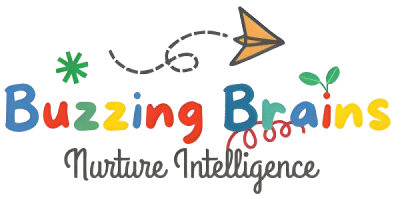Developing Reaction Ability in Children
Reaction ability, also known as reaction time, is the ability to quickly respond to visual, auditory, or tactile stimuli. This skill is essential for children’s physical, emotional, and cognitive development.
What is Reaction Ability?
Reaction ability involves the ability to:
– Make rapid decisions
– Quickly respond to stimuli
– React to changes in the environment
Why is Reaction Ability Important?
Developing strong reaction ability is crucial for children’s:
– Emotional regulation: Reaction ability can help children manage stress and anxiety.
– Sports and physical activities: Reaction ability is essential for many sports, such as basketball, soccer, and tennis.
– Physical safety: Quick reactions can help prevent injuries and accidents.
– Cognitive development: Reaction ability is linked to attention, focus, and problem-solving skills.
Activities to Improve Reaction Ability
Here are some fun and engaging activities to help improve your child’s reaction ability:
– Red Light, Green Light: Play this classic game to help your child develop reaction ability and self-control.
– Reaction Ball: Use a reaction ball to play catch and improve reaction ability.
– Simon Says: This game is an excellent way to improve reaction ability and listening skills.
– Obstacle Course: Set up an obstacle course with tunnels, cones, and hurdles to challenge your child’s reaction ability.
Repercussions of Not Having Strong Reaction Ability
- Delayed response to danger: Children may struggle to react quickly to potential hazards, such as a ball rolling into the street.
- Difficulty with team sports: Reaction ability is crucial for participating in team sports, like soccer or basketball.
- Increased risk of injuries: Poor reaction ability can lead to accidents and injuries, especially in physical activities.
- Difficulty with multitasking: Children may struggle to react to multiple stimuli at once, impacting their ability to multitask.
Effects of Lack of Strong Reaction Ability in Different Age Groups
2-5 years
- Delayed response to auditory cues: Children may struggle to react to sounds, like a bell ringing or a parent’s voice.
- Difficulty with stopping and starting: Tasks like stopping a tricycle or starting a puzzle may be challenging.
- Increased reliance on others: Children may need assistance with daily activities, impacting independence.
5-8 years
- Struggles with team sports: Children may find it difficult to react quickly to changing situations during team sports.
- Difficulty with obstacle courses: Tasks like navigating an obstacle course or completing a balance beam may be challenging.
- Frustration with physical activities: Children may become frustrated with activities that require quick reactions.
8+ years
- Impact on athletic performance: Strong reaction ability is essential for success in many sports, like tennis or volleyball.
- Difficulty with complex problem-solving: Children may struggle with tasks that require quick thinking and reaction.
- Increased risk of emotional and social difficulties: Poor reaction ability can lead to feelings of inadequacy and social isolation.
Tips for Parents
As a parent, you can support your child’s reaction ability development by:
– Limiting screen time and promoting active learning
– Encouraging physical activity and outdoor play
– Practicing reaction-based exercises with your child
– Providing opportunities for reaction-based games and activities
Age-Specific Reaction Ability Development
Here are some age-specific tips to support reaction ability development:
– 2-5 years: Use simple reaction-based games and activities, such as Red Light, Green Light, to help your child develop basic reaction ability.
– 5-10 years: Engage your child in more complex reaction-based games and activities, such as obstacle courses and reaction ball games.
– Beyond 10 years: Encourage your child to participate in sports and physical activities that require quick reactions, such as basketball or soccer.
Conclusion
Reaction ability is a vital skill that plays a crucial role in children’s physical, emotional, and cognitive development. By providing opportunities for reaction-based games and activities, and using strategies to support reaction ability, you can help your child develop strong reaction ability skills.
